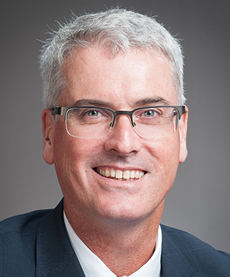Engagement between universities and the wider community
"How closely involved should universities be with the wider community?" is a question that Professor Frazer Allan, Victoria University of Wellington’s new Deputy Vice Chancellor Engagement, has been thinking about.

"How closely involved should universities be with the wider community?" is a question that Professor Frazer Allan, Victoria University of Wellington’s new Deputy Vice Chancellor Engagement, has been thinking about since he took up the new position at the beginning of the year.
"The traditional perception has been that universities stand apart from society – they’re 'ivory towers' if you like.
"In this way, so the idea goes, they preserve their freedom to analyse, discuss and, if necessary, criticise."
Such academic freedom is invaluable, says Professor Allan, and needs to be stoutly defended.
"Universities need to be able to speak up on any subject, no matter how unpopular. That's a non-negotiable."
At the same time universities have a duty to engage with the wider community: "If they become too separate from society – too 'ivory tower-ish' – then there's a danger they become irrelevant."
Victoria’s ambitious new strategic plan
Deeper engagement with the community is one of six key strategies in Victoria's ambitious new Strategic Plan, which aims to make Victoria one of the world's leading capital city universities.
"The University wants to build closer ties with alumni, benefactors and the community as a whole," says Professor Allan.
"In Wellington, that community includes the public service, the diplomatic community, the professions, businesses, cultural organisations, non-governmental organisations, iwi and Pasifika groups.
"The idea is to increase Victoria’s impact in these sectors; to raise the University’s profile and make it a natural 'go-to' organisation for people in search of high-level intellectual expertise."
Engaging with alumni
One area where Victoria wants especially to increase its engagement is with alumni.
"I think it’s fair to say that in the past New Zealand universities concentrated on getting students in the door and educating them," says Professor Allan. "Little attempt was made to keep in touch with them after they left.
"The idea, now, is that we deepen our engagement with alumni. This means, in the first instance, making sure that as students they have an enjoyable, rewarding time at Victoria.
"After they leave, we aim to keep in contact with them through a range of mechanisms: reunions for example. In this way we hope to create a positive, ongoing relationship with alumni which will be beneficial to both parties."
For decades universities in the United States, and more recently the United Kingdom, have mastered alumni engagement. However, "in this part of the world, we're a bit behind but now we intend to catch up".
Professor Allan acknowledges the perception that deeper engagement with sectors such as government or industry could lead to universities losing their intellectual independence.
"The danger exists, but it's something that universities can manage. We want to engage more deeply with the wider community but we're not going to be in anyone's pocket. Universities can, and do, work with industry, for example, without surrendering their intellectual integrity.
"There needs to be honesty and goodwill on both sides, and it helps if the rules of engagement are clear from the start.
"I am confident universities can engage more deeply with the wider community without losing their intellectual independence."
